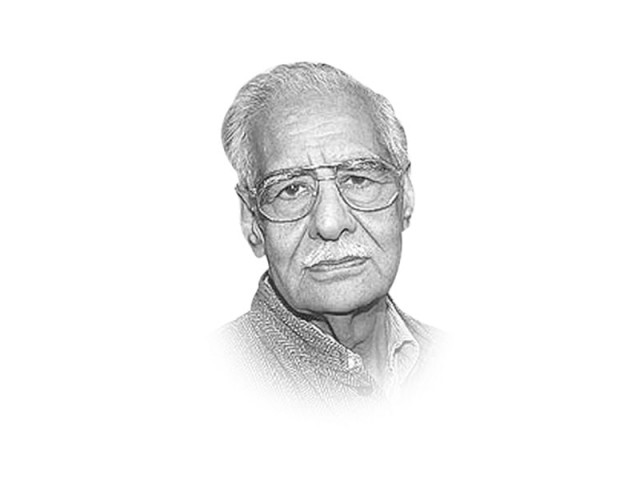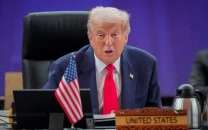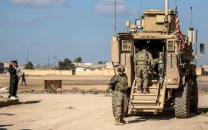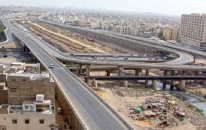Communal fault lines in Kashmir
The emotional integration of people in Jammu and Kashmir is essential for Kashmir’s development

The writer is a syndicated columnist and a former member of India’s Rajya Sabha
This is the first time that the BJP has entered the valley as a ruling party without winning any seat from there. The presence of Prime Minister Narendra Modi at the oath-taking ceremony only underlines the jubilation of the BJP over getting a niche in the valley. This may turn out to be only wishful thinking. A party with Hindutva on its agenda has little chance of any positive showing in a place where the population of Muslims is more than 95 per cent. Sayeed can claim that he has won the support of the BJP despite his anti-BJP electoral plank. But in the process, he has furrowed deep the differences between the valley, predominantly populated by Muslims, and Jammu, having a substantially large Hindu population. His desperation to form a government may have aggravated the divide.
It is not understandable why Sayeed stated that separatists, militants and Pakistan have helped in enabling the elections in the state. If it were up to these entities, they would not have done so. The separatists boycotted the polls, not to help Sayeed, but to highlight their stance that the polls taking place under the supervision of the Indian election commission were a farce. New Delhi had deployed security forces in the state in such numbers that the elements trying to disturb the scene would have been crushed. The militants, with depleted strength, probably did not want to risk getting crushed. As far as Pakistan is concerned, it is playing a long-term game. It realises that it cannot take Kashmir from India by force. Former prime minister Zulfikar Ali Bhutto, after the 1965 war, once told me in an interview that Pakistan has “learnt the lesson from history” and would not challenge India on Kashmir on the battlefield. In 1971, the India-Pakistan war was confined to Bangladesh. Islamabad did nothing to disturb Kashmir although that would have meant opening a second front to divert India’s attention. In any case, war between the two countries is now ruled out because both are nuclear powers.
However, by mentioning separatists and elements from across the border, Sayeed has tried to placate the valley where pro-Pakistani elements thrive. Similarly, his demand for the return of Afzal Guru’s remains is aimed at placating Muslims in the valley. Some elements in the valley are prone to pushing the pro-Islamabad line on the plea that Pakistan is essentially a Muslim country. Sayeed’s own election campaign was not bereft of the Islamic streak or of identity politics. Over the years, the alienation of Kashmiris from India on the one hand, and the feeling of helplessness its population has over the question of becoming an independent country on the other, has left the field open for religious propagandists. Liberals in Kashmir are depleting in strength every day. The main reason for this is that Kashmiris have not yet realised that India would never accept another division of the country in the name of religion, especially since the Hindu-majority Jammu would like to either integrate with India or become a union territory. The Kashmiris’ demand for independence is considered suspect since the general perception is that this demand is just another ploy used in a bid to ultimately join Pakistan. The separatists’ proximity to Islamabad has deepened the suspicion. India’s cancellation of a meeting between its foreign secretary and that of Pakistan may have been an overreaction but it was meant to convey that the closer Islamabad is to the separatists, the farther it will be from New Delhi.
There was a time when Yasin Malik was acceptable to the Indians. But his conduct — outright hostility instead of opposition — has wound up his lobby in India. He has not only hardened himself but definitely changed the complexion of India-Pakistan friendship, which he earlier appeared to be a champion of. Sayeed has rightly described the PDP-BJP coalition as historic. But if the coalition remains only a method to share power, any long-term benefit that can accrue to Kashmir from such a government will be lost.
Coming to the Hurriyat, it has disfigured its image by becoming too close to the Jamaat-e-Islami in Kashmir. Unfortunately, it has not yet realised its mistakes and insists on taking a stance which mixes religion and politics. Unless it corrects its course, the Hurriyat would not count for much in the reconciliation process between India and Pakistan.
The visit of Indian Foreign Secretary S Jaishankar to Pakistan was one way of conveying that the earlier cancellation of talks between the foreign secretaries was India’s reaction to the situation prevailing at that time, and not a long-term policy. This has become amply clear from the talks that Jaishankar had with his counterpart in Islamabad. The two sides must shed pride and prejudice and sit across the table to take up a long-neglected issue: jihad against poverty. There is, in fact, an issue no more pressing for the two countries than the one of ameliorating the living conditions of people on both sides. It is a pity that even after almost seven decades of independence, both countries are bent on wasting the limited resources at their disposal on buying weapons rather than spending them on useful welfare measures. Sayeed should try to associate New Delhi with this cause because he is in a position to make Modi listen to him. The emotional integration of people in Jammu and Kashmir is essential for Kashmir’s development.
Published in The Express Tribune, March 19th, 2015.
Like Opinion & Editorial on Facebook, follow @ETOpEd on Twitter to receive all updates on all our daily pieces.


1701351241-1/Afghan-refugees-(3)1701351241-1-208x130.webp)
















COMMENTS
Comments are moderated and generally will be posted if they are on-topic and not abusive.
For more information, please see our Comments FAQ